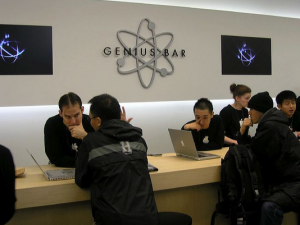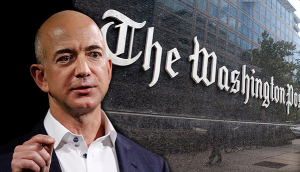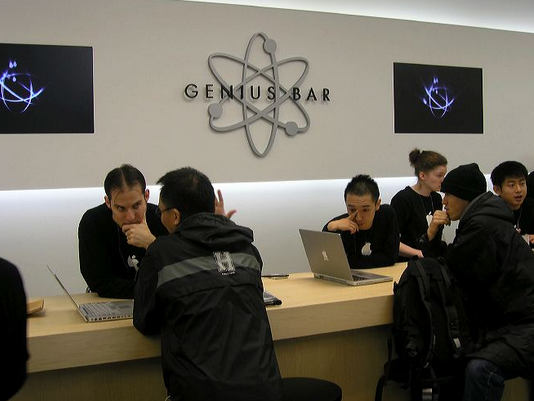Vision is the art of seeing things invisible to others. Vision doesn’t count without action. And not without an innovation strategy.

Awesome quote from Jonathon Swift.
Vision. We are always fascinated by this skill. And it is a great skill to have in our view.
Does it mean you see everything? Certainly not. It does mean you have the ability to see what many cannot. And then act on these.
Check out our thoughts on building innovation.
For years, I’ve been fascinated by Jeff Bezos’ vision. We write a lot about him and Amazon.
They are a great company to follow because of the Bezos’s vision. And his ability to make good bets on his vision.
Everything may seem rosy at Amazon these days. But for years it was amazing to see just how much criticism there was towards some of Bezos’ decisions.
For years, the company focused on growth and expansion over profitability. This strategy earned many complaints from investors.
More recently, it’s done things that left many scratching their heads, such as the whole Amazon Web Services (AWS) effort. And yes, even the Kindle effort. Yet both have proven to be quite successful.
Geekwire noted that at an Amazon shareholder meeting, an interesting question came from Evan Jacobs. Jacobs asked if Amazon was taking enough risks.

Think like Jeff Bezos.
Probably the most persistent — and damaging — myth about innovation is that it’s about ideas. It’s not.
Tremendous amounts of time and energy are wasted thinking up radically new ideas that never end up going anywhere. Middle managers never seem to tire of complaining that their ideas are ignored by the powers above.
The truth is that nobody cares about your ideas. They care about what problems you can solve for them. So if you want to innovate effectively, don’t go looking for a great idea so that you can dazzle others with your brilliance, look for a meaningful problem and get to work on solving it.
Bezos’ answer is all about his innovation vision. And how he considers his business vision and his ability to act on the vision.
What Seth Godin Teaches About Small Business Competitiveness
Here is Bezos interesting response to the Evan Jacobs question.
In a way, that is like the nicest compliment I’ve ever gotten.
First of all, I think we have gotten pretty lucky recently. You should anticipate a certain amount of failure. Our two big initiatives, AWS and Kindle, have worked out very well.
Ninety-plus percent of the innovation at Amazon is incremental and much less risky. We know how to open new product categories. We know how to open new geographies. That doesn’t mean that these things are guaranteed to work, but we have a lot of expertise and a lot of knowledge.
We know how to open new fulfillment centers, whether to open one, where to locate it, how big to make it. All of these things based on our operating history are things that we can analyze quantitatively rather than to have to make intuitive judgments.
When you look at something like, go back in time when we started working on Kindle almost seven years ago. There you just have to place a bet.
If you place enough of those bets, and if you place them early enough, none of them are ever betting the company. By the time you are betting the company, it means you haven’t invented for too long.
Innovation strategy … managing innovation

If you invent frequently and are willing to fail, then you never get to that point where you really need to bet the whole company.
AWS also started about six or seven years ago. We are planting more seeds right now, and it is too early to talk about them, but we are going to continue to plant seeds.
And I can guarantee you that everything we do will not work. And, I am never concerned about that. We are stubborn on vision. We are flexible on details.
We don’t give up on things easily. Our third-party seller business is an example of that. It took us three tries to get the third-party seller business to work. We didn’t give up.
But, if you get to a point where you look at it and you say look, we are continuing to invest a lot of money in this. And it’s not working. We have a bunch of other good businesses, and this is a hypothetical scenario, and we are going to give up on this.
On the day you decide to give up on it, what happens? Your operating margins go up because you stopped investing in something that wasn’t working. Is that really such a bad day?
So, my mind never lets me get in a place where I think we can’t afford to take these bets. Why? Because the bad case never seems that bad to me. And, I think to have that point of view, requires a corporate culture that does a few things.
I don’t think every company can do that, can take that point of view. A big piece of the story we tell ourselves about who we are is that we are willing to invent. We are willing to think long-term.
We start with the customer and work backward. And, very importantly, we are willing to be misunderstood for long periods of time.
But if you hold back and you say, ‘No, we believe in this vision.’ Then you just stay heads down, stay focused and you build out your vision.
That idea of staying the course for the long term has been the key to Amazon’s success. Vision requires the long term. As does innovation.
There are many great business growth campaigns we can learn from.
The bottom line
Innovation is extremely essential to any organization, especially in today’s hyper-competitive business market. The successful exploitation of new ideas is critical to a business’s ability to improve its processes, bring new and improved products and services to the market, increase its overall efficiency and productivity, and, most importantly, improve its profitability.
Please post your comments below, offering questions or your own great examples of business growth strategies.

